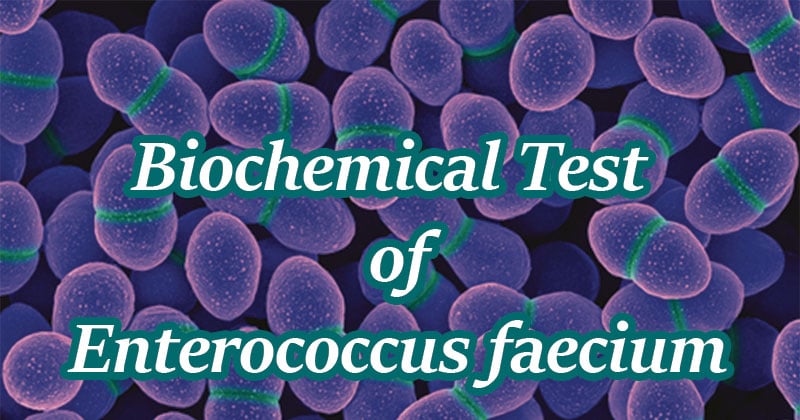Interesting Science Videos
Some of the characteristics are as follows:
| Basic Characteristics | Properties (Enterococcus faecium) |
| 40% Bile Salts | Positive (+ve) |
| Capsule | Negative (-ve) |
| Catalase | Negative (-ve) |
| Citrate | Negative (-ve) |
| Gelatin Hydrolysis | Negative (-ve) |
| Gram Staining | Gram-positive |
| H2S | Negative (-ve) |
| Hemolysis | Variable |
| 0.1% Methylene blue milk | Positive (+ve) |
| Motility | Negative (-ve) |
| 6.5% NaCl | Positive (+ve) |
| Pigment | Negative (-ve) |
| Shape | Cocci |
| Spore | Negative (-ve) |
| VP (Voges Proskauer) | Positive (+ve) |
Fermentation of |
|
| Adonitol | Negative (-ve) |
| Arabinose | Positive (+ve) |
| Arabitol | Negative (-ve) |
| Arbutin | Positive (+ve) |
| Cellobiose | Positive (+ve) |
| Dulcitol | Negative (-ve) |
| Erythritol | Negative (-ve) |
| Fructose | Positive (+ve) |
| Fucose | Negative (-ve) |
| Galactose | Positive (+ve) |
| Beta- Gentiobiose | Positive (+ve) |
| Glucose | Positive (+ve) |
| Glycerol | Variable |
| Glycogen | Negative (-ve) |
| Hippurate | Variable |
| Inositol | Negative (-ve) |
| Lactose | Positive (+ve) |
| Malate | Negative (-ve) |
| Maltose | Positive (+ve) |
| Mannitol | Variable |
| Mannose | Positive (+ve) |
| Melibiose | Variable |
| Raffinose | Variable |
| Rhamnose | Variable |
| Sorbitol | Variable |
| Starch | Negative (-ve) |
| Sucrose | Variable |
| Trehalose | Variable |
| Xylose | Variable |
Enzymatic Reactions |
|
| Alkaline Phosphatase | Negative (-ve) |
| Arginine Dehydrolase | Positive (+ve) |
| Esculin Hydrolysis | Positive (+ve) |
| ONPG (β-galactosidase) | Positive (+ve) |
| Pyrrolidonyl aminopeptidase | Positive (+ve) |
| Tellurite | Negative (-ve) |
References
- Bergey, D H, William B. Whitman, Vos P. De, George M. Garrity, and D Jones. Bergey’s Manual of Systematic Bacteriology: Vol. 3. New York: Springer, 2009. Print.
- Manero, A., & Blanch, A. R. (1999). Identification of Enterococcus spp. with a biochemical key. Applied and environmental microbiology, 65(10), 4425-30.
- https://journals.plos.org/plosone/article?id=10.1371/journal.pone.0059491
- https://www.dairyscience.info/entero-key.htm

